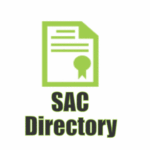| Organization | South Carolina Association of Alcoholism and Drug Abuse Couselors |
|---|---|
| Address | 1215 Anthony Ave. Columbia, SC 29201 |
| Phone # | (803) 540-7527 |
| Website | http://www.scaadac.org/ |
| National Affiliate | NAADAC |
Certification in South Carolina requires completing the written exam through NAADAC. They also require an oral exam. IC&RC is involved with prevention credentials. The certifications available in South Carolina are:
- Certified Addictions Counselor I
- Certified Addictions Counselor II
- Certified Clinical Supervisor[/fusion_builder_column]
Average Salaries
Welcome to the South Carolina Substance Abuse Counselor Certification Guide. Substance abuse counselors are critical to the fight against addiction, especially in South Carolina, where the opioid crisis and alcohol dependency are growing concerns. As a certified addiction counselor, you will provide support and treatment to individuals seeking recovery and help them reclaim their lives.
In this guide, you’ll learn the steps to becoming certified in South Carolina, including educational requirements, supervised experience, and continuing education opportunities. Whether you’re just starting or advancing your career, this guide will help you navigate the certification process.
Why Become Certified in South Carolina?
South Carolina has seen an increase in opioid-related deaths, with over 1,600 overdose deaths in recent years, many involving opioids and synthetic opioids like fentanyl (South Carolina Department of Health and Environmental Control, 2021). Alcohol addiction is another growing concern in the state. Certified addiction counselors are on the front lines of providing care and support to those in need.
By becoming certified in South Carolina, you open up career opportunities in hospitals, rehabilitation centers, and outpatient clinics, helping individuals overcome their addictions and lead healthier lives.
South Carolina Certification Requirements
Substance abuse counselor certification in South Carolina is regulated by the South Carolina Association of Alcoholism and Drug Abuse Counselors (SCAADAC). The state offers several levels of certification, including Certified Alcohol and Drug Counselor (CADC) and Certified Clinical Supervisor (CCS).
Educational Requirements
The educational requirements for becoming a certified addiction counselor in South Carolina vary depending on the level of certification:
- Certified Alcohol and Drug Counselor (CADC): Requires a high school diploma or GED and 270 hours of approved education in addiction counseling. Coursework must include topics like ethics, addiction treatment, counseling techniques, client assessment, and treatment planning.
- Certified Clinical Supervisor (CCS): Requires a bachelor’s degree in addiction counseling, social work, psychology, or a related field, along with 300 hours of specialized education in addiction counseling.
Tip:
Many institutions in South Carolina, such as University of South Carolina and Clemson University, offer programs that meet the educational requirements for addiction counseling certification.
Experience Requirements
In addition to education, candidates must complete supervised clinical experience:
- CADC: Requires 6,000 hours of supervised clinical experience for candidates with a high school diploma. For candidates with a bachelor’s degree, the required hours are reduced to 4,000.
- Certified Clinical Supervisor (CCS): Requires 2,000 hours of supervised clinical experience, focusing on direct client interaction, group therapy, and clinical supervision.
Practical Advice:
You can gain supervised clinical experience through organizations like LRADAC, Charleston Center of Charleston County, and The Phoenix Center, which offers comprehensive addiction treatment programs in South Carolina.
Certification Exams
Once you’ve completed your education and supervised experience, you’ll need to pass a certification exam. South Carolina uses the International Certification & Reciprocity Consortium (IC&RC) exams for addiction counselors.
- IC&RC Alcohol and Drug Counselor (ADC) Exam: This exam covers key areas such as addiction counseling, ethics, treatment planning, and client assessment.
Study Tips:
Prepare for the exam by using IC&RC-approved study guides and taking advantage of practice exams. SCAADAC also offers workshops and resources to help candidates prepare for the exam.
Application Process
Once you’ve met the education, clinical experience, and exam requirements, you can apply for certification through the South Carolina Association of Alcoholism and Drug Abuse Counselors (SCAADAC).
Steps to Apply:
- Complete the Application: Download the application from the SCAADAC website.
- Submit Required Documentation: You will need to provide:
- Official transcripts and certificates
- Proof of supervised clinical hours
- Exam results
- Pay the Application Fee: Application fees typically range from $150 to $300, depending on the level of certification.
- Submit the Application: Applications can be submitted online or by mail. Keep copies of all submitted documents for your records.
Renewal and Continuing Education
Certification renewal is required every two years. Continuing education ensures that addiction counselors stay updated on the latest techniques and trends in the field.
- CADC and CCS Renewal: Requires 40 hours of continuing education (CEUs) every two years, with 6 hours dedicated to ethics training. CEUs should focus on new developments in addiction treatment, clinical supervision, and co-occurring disorders.
Continuing education opportunities are available through SCAADAC, the University of South Carolina, and local organizations that provide workshops, webinars, and seminars.
Frequently Asked Questions (FAQs)
How long does becoming a certified addiction counselor in South Carolina take?
The timeline varies based on education. Those with a high school diploma can take 2 to 4 years to accumulate the required supervised clinical hours and pass the certification exam. Candidates with a bachelor’s degree may take 1 to 2 years.Can I complete my certification education online?
Yes, many accredited institutions offer online programs that meet South Carolina’s educational requirements for addiction counselors. However, supervised clinical experience must be completed in person at an approved facility.Is my South Carolina certification transferable to other states?
Yes, South Carolina participates in reciprocity agreements through IC&RC, allowing your certification to be transferable to other states that recognize IC&RC credentials. Check with the specific state for detailed reciprocity requirements.What is the cost of certification in South Carolina?
The total cost of certification, including exam and application fees, typically ranges from $200 to $500, depending on the level of certification. Renewal fees and continuing education costs apply every two years.How do I find a supervisor for my clinical hours?
You can find supervisors through SCAADAC or by contacting local addiction treatment centers, hospitals, or behavioral health organizations such as LRADAC and The Phoenix Center.
Additional Resources for South Carolina Substance Abuse Counselors
- South Carolina Association of Alcoholism and Drug Abuse Counselors (SCAADAC)
- IC&RC Exam Information
- South Carolina Department of Alcohol and Other Drug Abuse Services (DAODAS)
- University of South Carolina Addiction Studies Program
Mental Health and Addiction in South Carolina
Mental health and addiction are closely intertwined in South Carolina. According to the South Carolina Department of Health and Environmental Control, over 50% of individuals seeking treatment for substance use disorders also experience co-occurring mental health disorders such as depression or anxiety (SCDHEC, 2021). As a certified addiction counselor, you will address both addiction and mental health needs, providing comprehensive treatment that supports long-term recovery.
Are you ready to begin your journey toward becoming a Certified Alcohol and Drug Counselor (CADC) or Certified Clinical Supervisor (CCS) in South Carolina? Follow the steps outlined in this guide to start your certification process and positively impact the lives of those affected by addiction.
For more information or to connect with other professionals, join our forum to share your experiences and gain support from fellow addiction counselors. Join the Forum.
Sources:
- South Carolina Department of Health and Environmental Control. Opioid and Substance Use Report, 2021. Available at: SCDHEC Report.



I was wondering what requirements I would need before getting a certfication in substance abuse counseling such as psychology, sociology, etc.